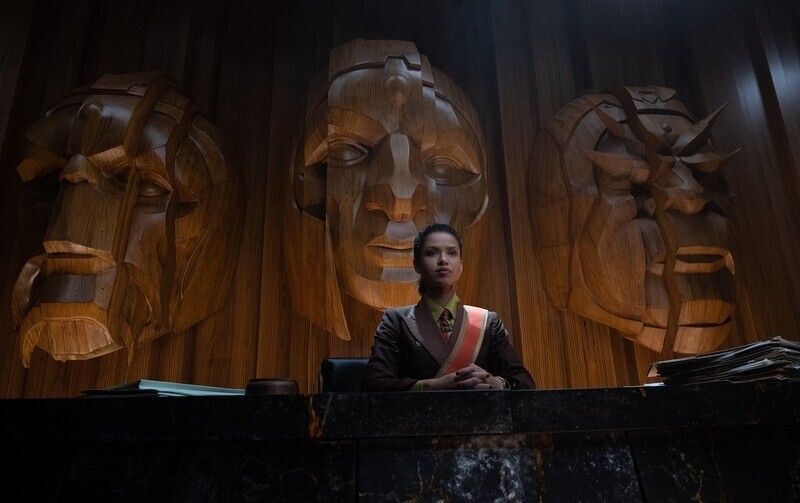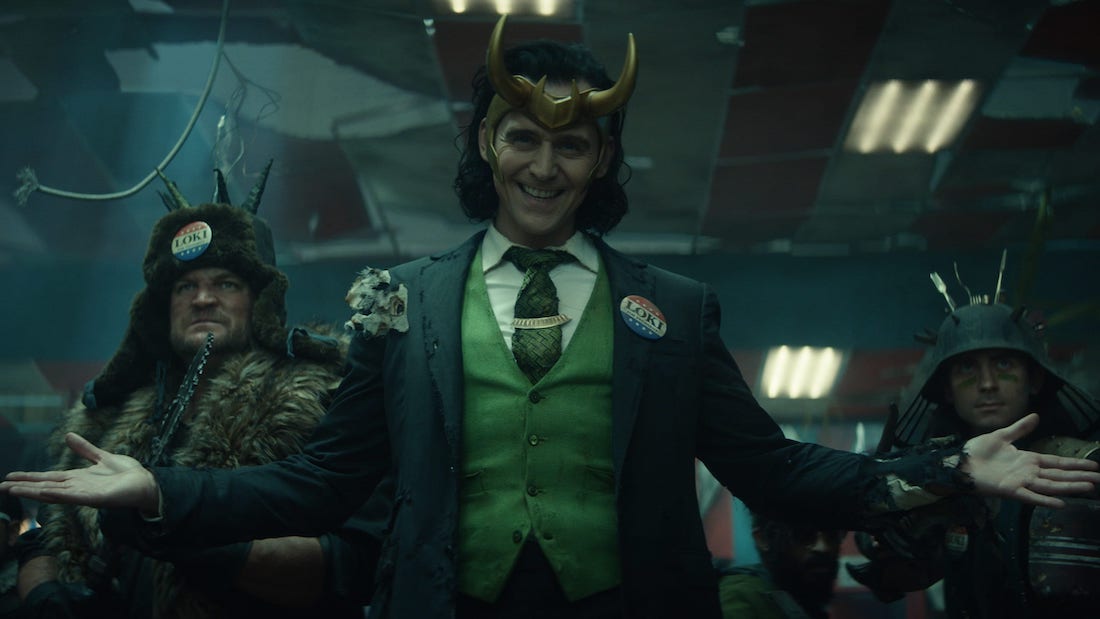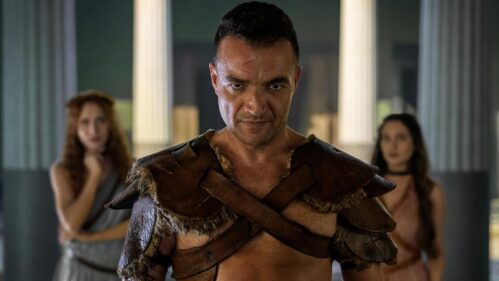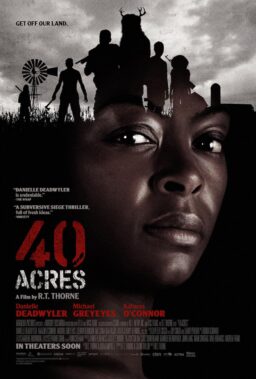In a different timeline, “Loki” would have made for an excellent Christopher Nolan movie. But in the timeline that you and I share, it’s an exciting and genuinely inspired addition to Marvel storytelling, one that spins off and rockets its complicated villain into original territory with the help of time travel. We are well aware of this character and his degrees of goodness and badness, and it builds from that backstory with a spirited take on time travel that deals in doubles, different realities, practical sci-fi technology, and more. And just like Nolan’s plotting, “Loki” is comprised of fascinating games, including how Hiddleston navigates the backstabbing Asgardian ‘God of Mischief’ through a premise that requires him to holster his god powers, acting in ways that make him unpredictable to his new teammates and us.
“Loki” proves something that I’ve felt has been important about many of these Marvel extensions and how they unfold. If the scenario can stand on its own, without seeming too inside baseball, the story is especially intriguing. “WandaVision,” for all of its merits, is a good comparison as that show was far slower and frustratingly so far up its own concept—“Loki” throws you into a psychological time traveling mystery, in which it seems to be about the internal actions of the title character as much as the external. It’s incredibly promising from the first two episodes provided for press alone, especially as a series that doesn’t demand patience but instead straps you right into its heady and mischievous adventure.
You’ll remember—or you have to—that Loki escaped from the Avengers at the end of “Avengers: Endgame,” during a flashback that actually took place in the “The Avengers.” It doesn’t matter that Loki got his throat crushed by Thanos in “Avengers: Infinity War,” because this is an earlier version of the God of Mischief from Asgard, who had a bit of a redemption arc up till his demise. Shortly after escaping from the Avengers using the Tesseract Infinity Stone, Loki is captured by a group of soldiers (including one played by Wunmi Mosaku of “His House”) from an organization called the Time Variance Authority, known as TVA. They have an important hold on the universe—they patrol timelines and make sure things go as they have been predetermined by three gods known as the Timekeepers. And they have the ability to travel to different time periods and “correct” the event, preventing their own disruption (called a “nexus”). Loki’s escape proved to be against the timeline, which is big news to him. He quickly finds out that he’s completely powerless in the world of TVA, which is a funny way to be reintroduced to this character after he previously tried to destroy Earth.

Loki escapes his true TVA punishment—delivered by a bureaucrat played by Gugu Mbatha-Raw, a character only just introduced here—when he’s brought onboard a TVA mission that needs his expertise. He’s enlisted by Mobius M. Mobius, a low-key, trusting agent played by Owen Wilson, complete with trademark whispery whimsicality. Mobius needs Loki’s help in finding a special, elusive kind of target who is doing the same illegal time-hopping that Loki just did. (Let’s just say that Loki knows this character personally.) But before he gets on the mission, Mobius interviews Loki about who he really is, which involves showing Loki all of the betrayal and growth that happened in the later Marvel movies, but does not exist in this Loki’s current timeline. These scenes brilliantly function as therapy and character exposition, giving this villain the psychological reexamination that would only be interesting with so much backstory, and moments of this Loki emotionally seeing what he’s truly been capable of. This is all before the pursuit truly kicks off, but as an existential centerpiece of episode one, it’s captivating.
Hiddleston is a shady rock star in this world, playing a self-proclaimed god whose powers are rendered impotent by his surroundings but with an ego always on fire at his core. He’s always been great with the bluster behind the part of Loki, even as the character was softened in later movies, and the series mines this superiority for a great challenge to his heavily damaged moral compass. Because of Hiddleston’s work, many of his decisions within the mission, to help or not not, become especially visceral or effective. The cliffhanger in episode two is a great example of that, and also an instant sell for why I can’t wait to follow this show every week.
Director Kate Herron and writer Michael Waldron have fashioned a helluva giddy set-up for this series, with these first two episodes proclaiming an especially lean and speedy energy. At the moment, there’s not many other subplots—Wilson and Mbatha-Raw’s strait-laced characters have a couple side conversations, but those aren’t very interesting—and it’s more about this idea of Loki confronting his past back-stabbings. In the best moments within the two episodes provided for press, “Loki” wonders aloud about whether people can change, and if everything is truly pre-determined. And with Wilson and Hiddleston having these conversations through their tenuous buddy chemistry, “Loki” can be fairly engrossing as Mobius wrestles with whether he can trust Loki with such a delicate mission.

“Loki” is a great gift for fellow time-travel nerds, given how Waldron and episode two writer Elissa Karasik fashion different rules for this time-hopping reality, including the ways in which all of time can be trashed if things get so far out of control. It becomes a chase in which periods of history are crime scenes, and it’s exciting to see how the characters follow different clues, using spare info that takes them from the 1500s to the mid ‘80s to the 2050s and more. The series has a great practical sci-fi edge, with the TVA using old fashioned knobs and non-digital technology, while the TVA setting looks something straight from a sci-fi novel.
There’s still a great deal more to see—not just because it’s only two episodes, but because the world-building has been small to this point. But “Loki” introduces a lot of encouraging qualities, like a sharp sense of humor with how the TVA is so powerful that the office workers use Infinity Stones as paperweights. It’s also charming whenever an animated character named Miss Minutes (voiced by Tara Strong) shows up, after her introduction that’s straight out of the Mr. DNA introduction in “Jurassic Park.” It even seems like part of the series’ wilder instincts to cast Wilson in the role—he’s never been in the Marvel Cinematic Universe, and he seems transparently weary to be here, dealing with Loki’s hit-and-miss manipulations. It’s weird, and it’s kind of perfect.
And as the chase ramps up, there’s so much intriguing character-based ideas I won’t get into for the sake of the surprise. But safe to say that the series is all about what it’s like to be Loki, and that there’s still an intricate nihilism that keeps it deliciously dark. If it can keep all of this energy going through the rest of the season, “Loki” is bound to be a sci-fi gem. That’ll be because of Hiddleston and all he’s built before with this character, but also the kind of crafty genre storytelling that makes for a great yarn, whatever cinematic universe it’s taking place in.
Two episodes screened for review. The show premieres on June 9th, with a new episode every subsequent Friday.












